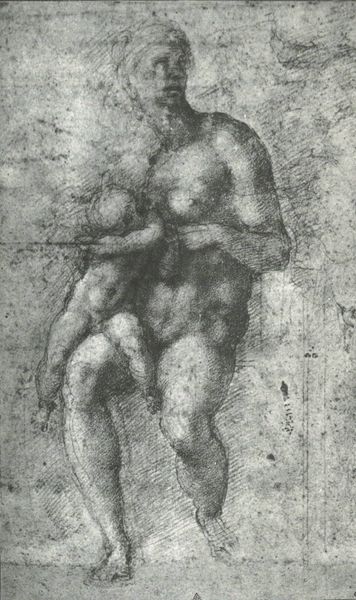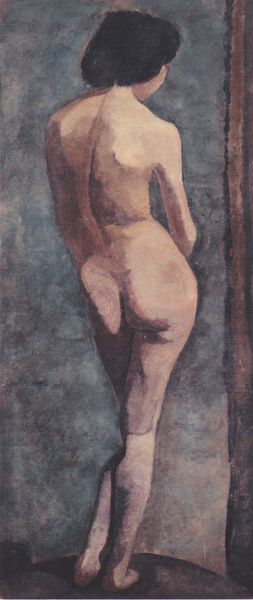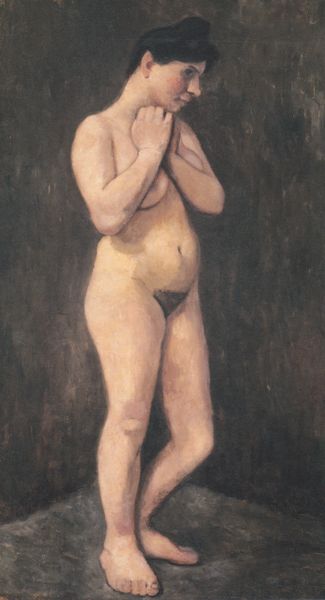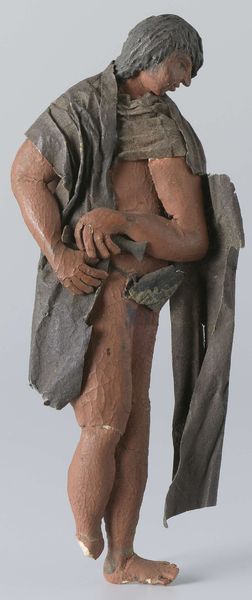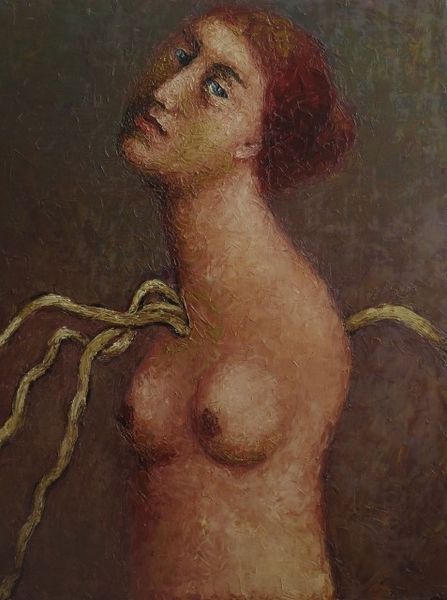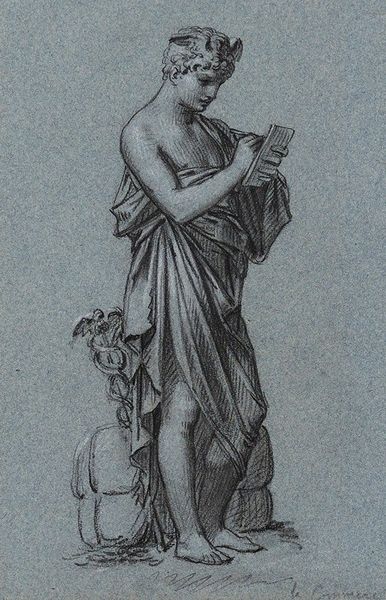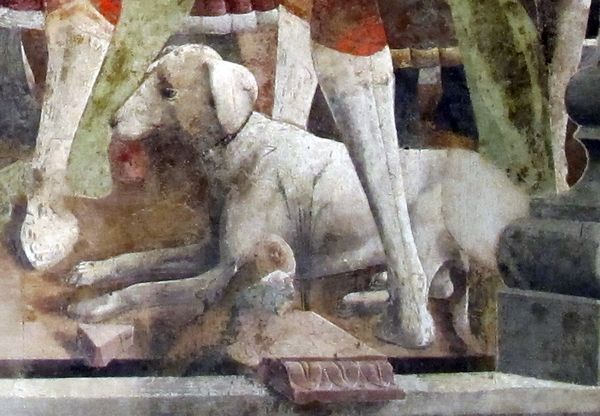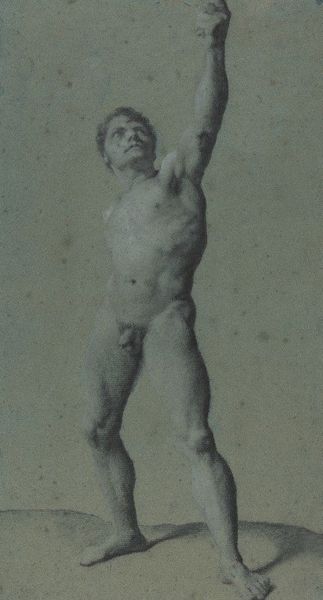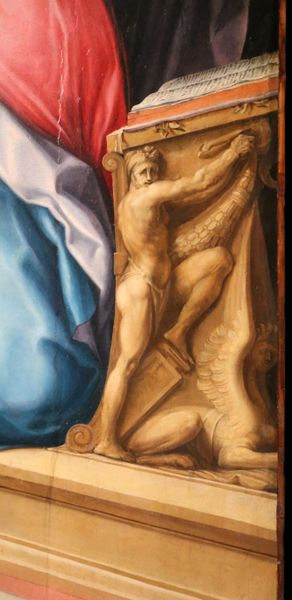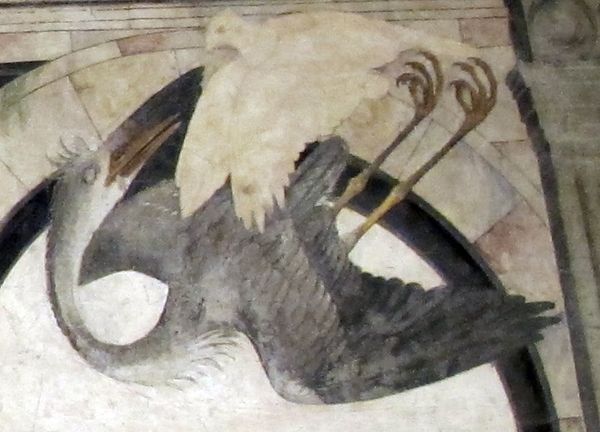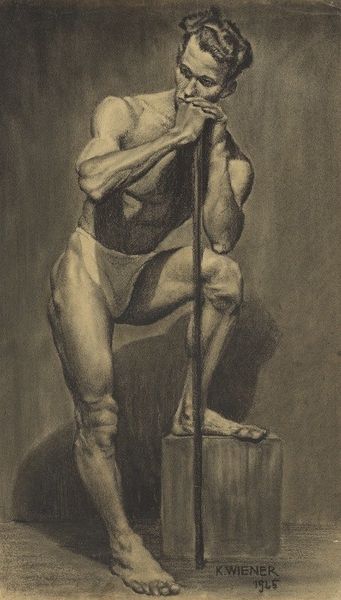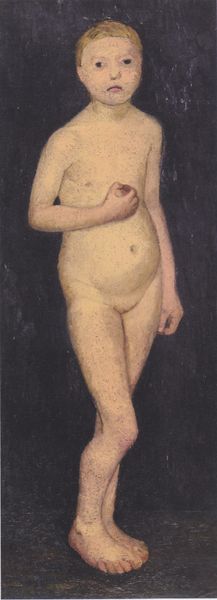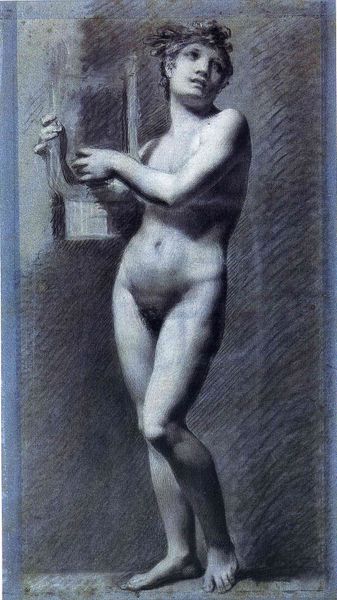
Allegory of May – Triumph of Appolo. Frescos in Palazzo Schifanoia (detail) 1470
0:00
0:00
fresco, mural
#
allegory
#
figuration
#
fresco
#
11_renaissance
#
oil painting
#
mythology
#
human
#
italian-renaissance
#
nude
#
mural
Copyright: Public domain
Editor: This is a detail from Francesco del Cossa’s “Allegory of May – Triumph of Apollo,” a fresco dating back to about 1470. The figure, against this deep blue backdrop, looks almost vulnerable, exposed, and perhaps cold. What do you make of this depiction? Curator: This vulnerability, this visible shiver, is quite telling. We see Apollo, not as the triumphant sun god, but almost stripped bare. Think about the classical symbolism typically associated with Apollo - the lyre, the laurel wreath, the sun chariot. Where are they? Their absence speaks volumes. Editor: So, you’re suggesting this is a deliberate choice to subvert expectations? Curator: Precisely! Cossa, rooted in the Renaissance, knew the power of symbols. The cold he seems to be portraying in the artwork perhaps relates to a time where traditional beliefs begin to shift, moving from divine authority to a more humanist perspective. The embracing arms and the pallid, exposed skin hint at a deity vulnerable to earthly concerns and needs. Are there are similar instances you can recall? Editor: I am aware of Caravaggio stripping down the religious iconography. It is really compelling how the artist achieves communicating by depriving it from its core symbols and components. I find it fascinating to think about this piece and the psychological vulnerability it could embody, like it carries within its symbolic form the reflection of human anxieties! Curator: Indeed. And remember, this is part of a larger fresco cycle, meant to illustrate the months of the year. What might this "May Apollo" signify within that seasonal context? A re-birth after winter, that is uncertain? Perhaps Cossa shows it intentionally uncomfortable to mark a starting point with less bravado. Editor: That's insightful. It reframes the entire allegory for me, as I better understand how meaning shifts when conventional imagery is manipulated, revealing something profound about our relationship with these symbols and the culture from which they originated. Curator: Exactly! Now you see that icons aren’t static; they evolve, reflect, and even challenge our perceptions.
Comments
No comments
Be the first to comment and join the conversation on the ultimate creative platform.
